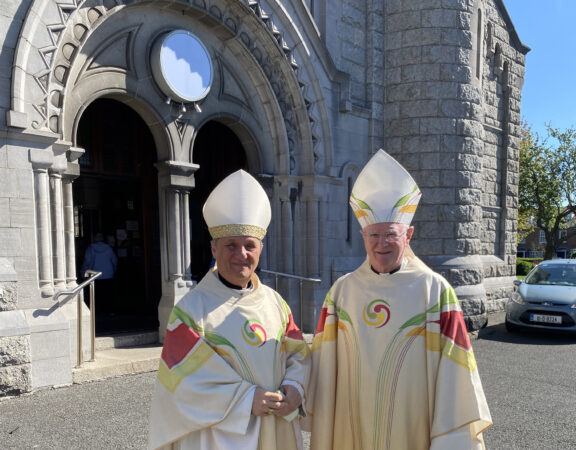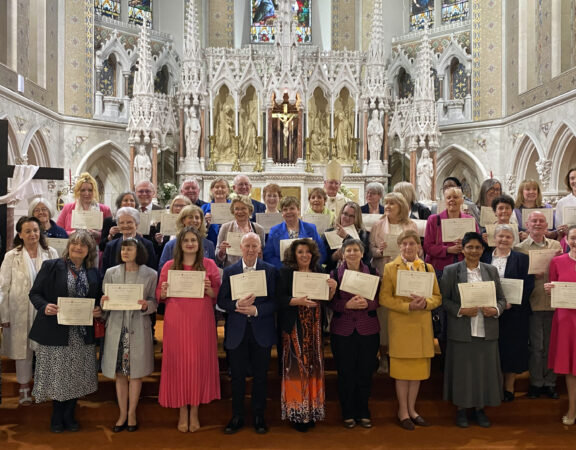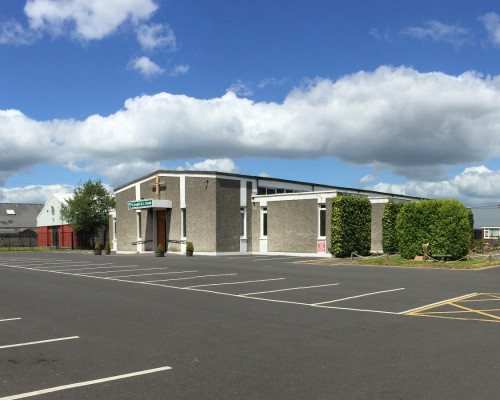Archbishop Dermot Farrell – Message for Vocations Sunday 2023
Things take the time they take.
Don’t worry.
How many roads did St. Augustine follow before he became St. Augustine? (Mary Oliver, Felicity, 2015)
Finding our way is rarely easy. How many roads did Augustine follow before he became Saint Augustine… before he found his way? Finding our way through life can wonderful, but can also be very daunting. Particularly for young adults, but not only for them, discovering what one wants to do with one’s life can be very difficult.
The wisdom of Mary Oliver in her light-filled lines is first-hand, and hard-won. How many roads did Augustine take before he became Saint Augustine? How many roads did you take before you became you? How many roads did your family take, before it became the family you now are?
It takes time to discover who we are, and who we need to be. It also takes time to figure out what we can do in life to express, sustain, and flourish as the person we truly are, and need to be. Who we truly are, is the person God calls us to be. This is the deepest sense of vocation: God calls us to become ourselves, “to have life, and have it to the full.” (John 10:10) To lose sight of this, is to lose sight of the living God who calls us into life, and sustains us day-in-day-out.
True vocation is dynamic, alive. It can, therefore, be difficult, at least initially, to hear God’s call. Vocation takes time. Life calls us constantly; God calls us constantly, but it takes time to hear. It takes time to receive the gift of life.
It is in this perspective, that I want to say three things about vocation: three things that are true for every person—whether we are people of faith, or people who do not see themselves in this way.
- It is God who calls: to seek one’s vocation in life is to engage with the mystery of who of we are, the mystery of life itself, and the mystery of God who is.
- We are called through life: while we hear our call deep within, it is always heard in dialogue with those around us, and with the world.
and
- We are called to life: our true vocation is life-giving—for ourselves and for those we encounter. Our true calling in life stretches us, lifts us beyond ourselves.
In such a perspective many of our ‘concerns’ about vocation fall away, and the real challenges of vocation can be seen in another light. In that light, might we wonder about our prayer for “vocations.” First, rather than telling the Lord what we want—more priests, more religious, perhaps we might need to pray—and pray deeply: What do you want, Lord? What is your will?
Second, most reflection on the scarcity of vocations has been “either-or”—either priests or laity, priestly ministry or lay ministry, religious vocation or lay vocation. This is a fatal logic for the life of the Church! Christ’s way is both-and: both slave and free, both men and women (see Gal 3:28). We pray for servants of the gospel—both lay and ordained, both women and men, young and old.
Third: we might pray with ever increasing earnestness—that Christ be known. As he says in today’s Gospel, “I am the gate. Anyone who enters through me will be safe…” (John: 10:9) It is he who is “the light of the world,” “the way, the truth, and the life.” (John 8:12; 14:6) Let us pray that the world may come to know him! The harvest is rich. Let us the pray the generous Lord of the Harvest, to send labourers into his harvest. People with generous, warm and courageous hearts, women and men, young and old, who together have come to know his Son. May “the Lord’s goodness and kindness follow us all the days of our life.” (Psalm 23:6)
Dermot Farrell
Archbishop of Dublin









